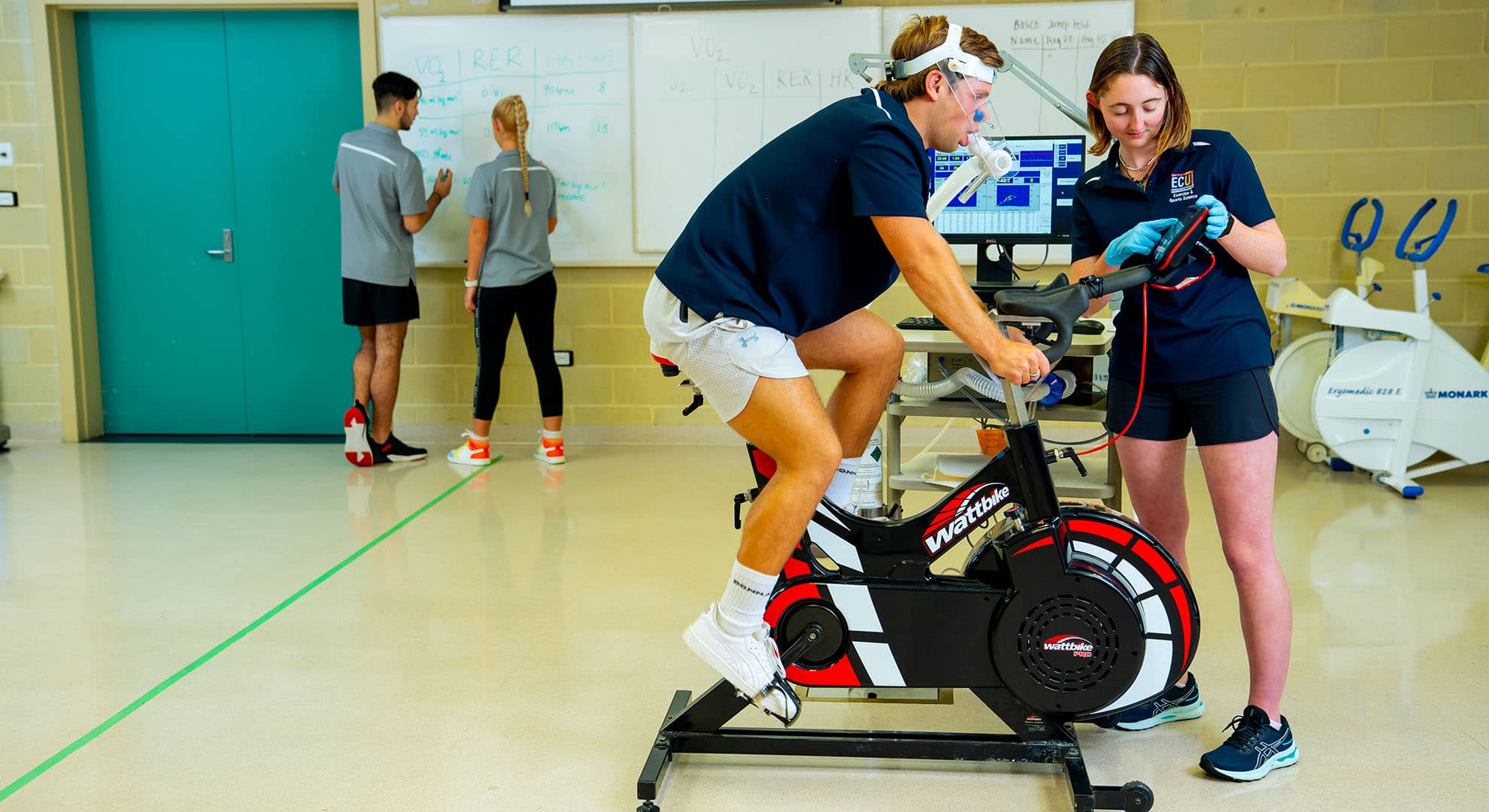So what's the difference between physiotherapists and exercise physiologists?
According to Brisbane-based exercise physiologist Tim Douge, physio training has a heavy emphasis on the diagnosis and assessment of disease and disability states within the body, with the treatment revolving mostly around the acute reduction of symptoms.
Physios use a lot of 'hands-on' methods like massage to assist their patients, whereas an exercise physiologist uses targeted exercise to produce a therapeutic or performance outcome.
"But exercise physiologists have a greater emphasis on increasing functional capacities and quality of life over a longer period of time with a focus on chronic disease management," Tim says.
What qualities do you need for this work?
Obviously, you need to be someone who cares about people – of all ages.
You'll also need to be able to communicate clearly, work well in a team and have strong interpersonal skills.
An interest in science, especially in anatomy and physiology is also helpful.
And you must be interested in improving people's health through exercise (you just don't need to be a fitness guru).
Where do exercise physiologists work?
Having an exercise physiologist skillset allows you to work in a variety of settings.
These include hospitals, medical centres, community care organisations, occupational rehabilitation, the defence industry, sports teams and community fitness centres.
Working as a rehabilitation consultant, for example, you'll have the skills to help people who have suffered injury or illness to return to full function.
And while prescribing exercise may be one part of this, your training allows you to take a holistic view of recovery and assist clients with their return to fully functioning lives, both physically and psychologically.
How do you become an exercise physiologist?
An exercise physiologist is an allied health professional with extensive training in understanding the body's response to exercise.
They're much more than a personal trainer or gym instructor.
They have extensive knowledge of the human body and the benefit that exercise has on it, both mentally and physically.
To join the profession, you’ll need a bachelor's degree in science, majoring in exercise and sports, exercise and rehabilitation, health science or a related field, to work as an exercise physiologist.
ECU's Exercise Science and Rehabilitation degree is one such course.
Importantly, it's accredited by Exercise and Sports Science Australia, the profession's peak body.
You can learn more about the course and where it can take you from one of our graduates in this short video.
Joel is changing lifestyles through exercise physiology (2 mins)

 Exercise Science student monitoring performance of a fellow student in an ECU exercise lab
Exercise Science student monitoring performance of a fellow student in an ECU exercise lab


